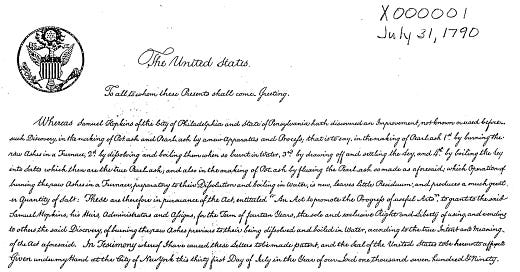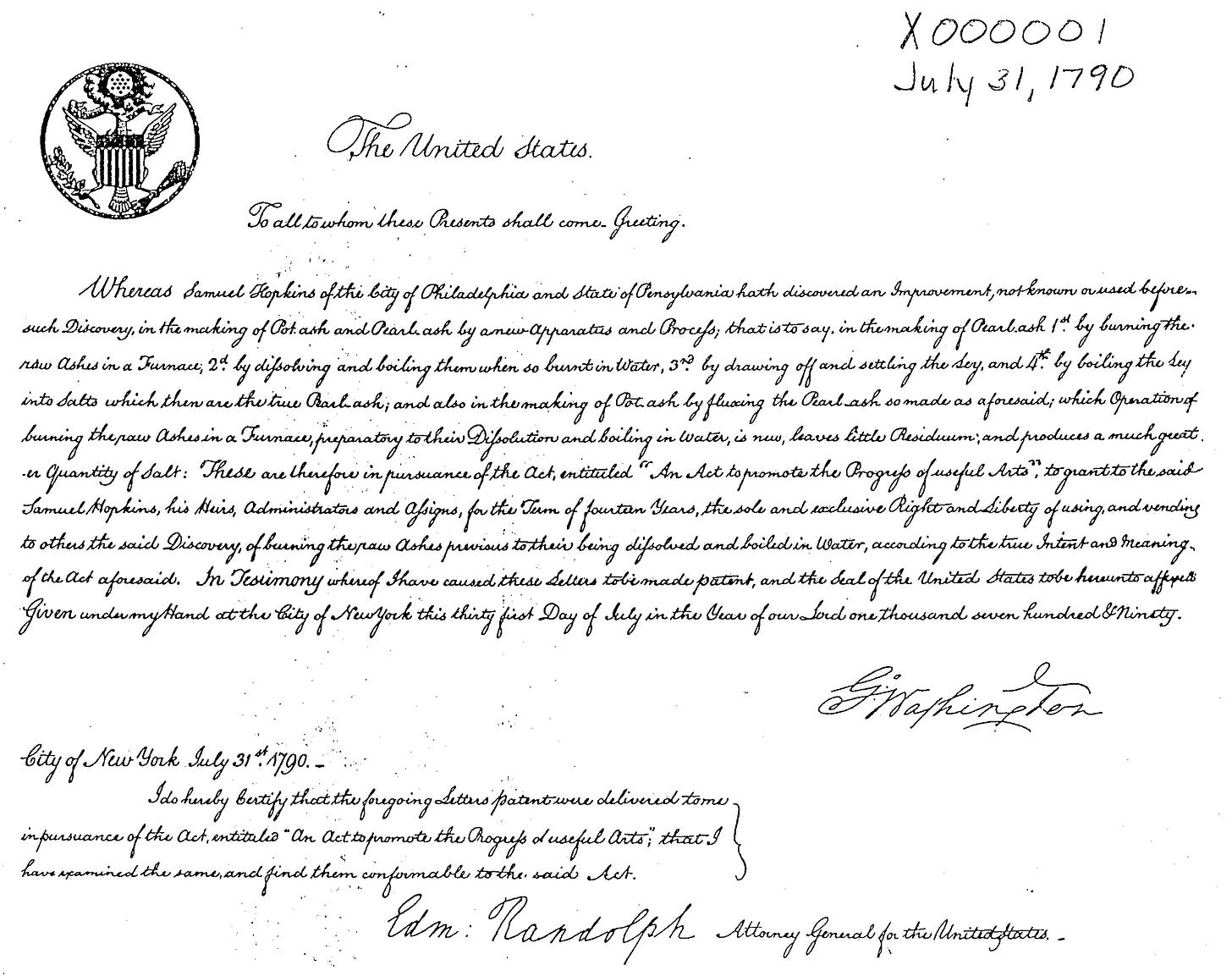This Day in Legal History: Patent Act of 1790
On April 10, 1790, the United States passed its first patent law, the Patent Act of 1790, laying the groundwork for a legal framework that would protect inventors and promote innovation. This early legislation granted inventors the exclusive right to their discoveries for a period of 14 years, provided the invention was deemed "useful and important." It was signed into law by President George Washington and represented one of the earliest legal efforts by the new republic to encourage economic growth through technological advancement. The law established a board composed of the Secretary of State, the Secretary of War, and the Attorney General, who were tasked with reviewing patent applications and deciding whether to approve them.
Notably, the law gave the federal government broad discretion over what could be patented and required that a patent be granted only if the invention was new and useful. The first U.S. patent under this act was issued on July 31, 1790, to Samuel Hopkins for a process of making potash, a key industrial chemical. Although modest in scope, the law was revolutionary in its recognition of intellectual property as a public good worth safeguarding. It helped move the United States toward a more structured innovation economy, setting a precedent that influenced global norms on patent protection.
The 1790 law was replaced just three years later by the Patent Act of 1793, which shifted the review process to a more administrative function, but the foundational principle—that inventors should have exclusive rights to their creations—remained intact. This early commitment to fostering invention through legal means helped spur the rapid technological growth that would define American industry in the 19th century and beyond. The act exemplified how the law could be used to incentivize creativity and economic development at a national scale.
Bristol Myers Squibb successfully got a proposed class action lawsuit dismissed that had accused it of using fraudulent tactics to maintain a monopoly over its cancer drug, Pomalyst. The suit, led by Blue Cross Blue Shield of Louisiana, claimed that Bristol Myers and its subsidiary Celgene illegally secured patents and filed sham lawsuits to delay the entry of generic versions of Pomalyst, which is used to treat multiple myeloma. However, U.S. District Judge Edgardo Ramos ruled that the plaintiffs failed to prove that any of the six patents were obtained through fraud. He also found no evidence that the nine lawsuits Celgene filed between 2017 and 2020 against generic manufacturers like Teva and Mylan were baseless or intended to secure fraudulent settlements.
The plaintiffs alleged that they had been overpaying for the drug since October 2020, the point at which generics could have entered the market if not for the alleged conduct. Pomalyst brought in $3.55 billion in sales in 2024, accounting for more than 7% of Bristol Myers' revenue. Celgene originally developed the drug, and Bristol Myers acquired the company in 2019. The case was heard in the U.S. District Court for the Southern District of New York.
Bristol Myers wins dismissal of lawsuit alleging Pomalyst monopoly | Reuters
The Trump administration has frozen over $1 billion in federal funding for Cornell University and $790 million for Northwestern University amid investigations into alleged civil rights violations. The freeze affects grants and contracts from several federal agencies, including health, education, agriculture, and defense. This move is part of a broader crackdown targeting universities over pro-Palestinian campus protests, diversity programs, and transgender policies. The administration previously warned 60 universities, including Cornell and Northwestern, about potential enforcement if they failed to address what it labeled as antisemitism.
Cornell confirmed it received “stop work” orders from the defense department affecting research projects but said it hasn’t been formally notified of the total funding freeze. Northwestern similarly acknowledged awareness of media reports but stated it hadn't received official notice. The university emphasized the freeze could endanger critical research, including projects on cybersecurity, pacemakers, and Alzheimer’s treatment.
This action follows similar measures taken against Harvard, Princeton, Columbia, and the University of Pennsylvania. Columbia, which lost $400 million in funding, later agreed to administrative changes in exchange for potential reinstatement. Federal agents have also begun detaining and deporting some foreign student protesters, revoking visas in the process. Critics, including human rights groups, have voiced concerns over free speech, academic freedom, Islamophobia, and anti-Arab discrimination amid the escalating response to pro-Palestinian activism on campuses.
US freezes funding for Cornell, Northwestern University in latest crackdown
President Trump has issued a new executive order aimed at blocking state-level climate policies that seek to reduce fossil fuel use and limit carbon emissions. The directive instructs the U.S. attorney general to identify and challenge state laws related to climate change, environmental justice, ESG (environmental, social, and governance) standards, and carbon regulation. The move aligns with Trump’s broader agenda to boost domestic fossil fuel production and roll back Democratic-led environmental initiatives.
The order specifically targets policies in states like New York, Vermont, and California, including financial penalties on fossil fuel companies, California's cap-and-trade system, and climate-related lawsuits brought by state governments. Trump described these measures as ideologically driven and harmful to national energy and economic security.
Governors Kathy Hochul (NY) and Michelle Lujan Grisham (NM), co-chairs of the U.S. Climate Alliance, condemned the order, asserting states' rights to enact environmental protections. They reaffirmed their commitment to clean energy and climate resilience. The American Petroleum Institute supported Trump’s move, framing it as a defense against unconstitutional state actions that burden oil and gas companies.
Trump issues order to block state climate change policies | Reuters














Share this post